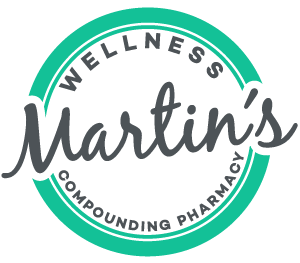The Truth about Cholesterol

The Truth About Cholesterol
By
Peter M. McCarthy
Certified Traditional Naturopath
There is perhaps no substance in the human body which has caused our society more recent concern than cholesterol. We are bombarded almost daily with advertising that urges us to “talk to your doctor” about how to lower the “bad” cholesterol that allegedly clogs our cardiovascular systems. While conferring with your health care practitioner is certainly advisable when dealing with this issue, it is imperative that we do so armed with accurate information. Some of this information is not well known and, therefore, quite surprising.
At the outset, it should be understood that cholesterol is a necessary substance in our bodies. Cholesterol constitutes the mechanism which transports fats and proteins (therefore, the name “lipoprotein”) to and from our cellular structure. The reason that we have both low and high density types (i.e., LDL and HDL) is that they each perform different functions. LDL is a more loosely bound substance meant to bring fats and proteins to the cells for use there, while HDL has a tighter chemical bond meant to return them to the liver for processing. So it is important to have adequate amounts of both types for our bodies to operate properly.
Additionally, cholesterol is the primary raw material comprising all of the steroid based hormones in the body. Cortisol, DHEA, testosterone, progesterone and the estrogen compounds all derive from cholesterol. Therefore, too low a cholesterol value runs the risk of depriving our bodies of the material we need to synthesize these important hormones.
Unfortunately, there are several myths that have grown up around the subject of cholesterol over the years. The first is that the cholesterol content of food has a direct impact on our serum cholesterol levels. There are many studies which debunk this “urban health legend,” but the most compelling is the Framingham Heart Study. This decades-long, ongoing study by Boston University Medical School discovered no connection between the cholesterol content of food and serum cholesterol levels.
The second myth is that high cholesterol alone is responsible for cardiovascular disease. Thanks to pioneering research conducted at facilities such as the Cooper Aerobics Institute in Dallas, we now know that cholesterol, in and of itself, is not the primary culprit in the onset of cardiovascular disease; inflammation of the blood vessels is. This inflammation, in turn, is caused by a number of factors, including stress, over exercise and consumption of processed foods which all set up an inflammatory process in the body.
The third myth is that high cholesterol can be addressed in isolation without adverse consequences to the rest of the body. High cholesterol is a signal that something within the body is out of balance. For example, if a person is under protracted stress, the body will produce more cholesterol to provide the raw material for synthesis of greater quantities of stress-related hormones. If a person’s body is having difficulty providing itself with adequate protein (usually because of poor protein digestion), cholesterol may elevate to provide more lipoprotein to the cells to compensate. You can see from these two examples alone that high cholesterol may be an indication of an underlying concern that needs to be addressed, rather than a problem in and of itself.
Peter M. McCarthy, ND
Peter M. McCarthy, ND is a nationally board certified traditional naturopath, and a wellness consultant with Martins Compounding and Wellness Centers in Austin, TX. He is the author of Adrenaline Nation: Chronic Stress is Ruining Our Health and Bankrupting Our Economy – Discover What YOU Can Do About It NOW! Trained in both functional blood work analysis and saliva hormone analysis, he is a former member of the Advisory Committee of the American Naturopathic Certification Board. He is available for individual wellness consultations by appointment at Dripping Springs Pharmacy, 100 Commons Road, Suite 1, Dripping Springs, TX, Monday through Friday from 12 pm til 6 pm.
